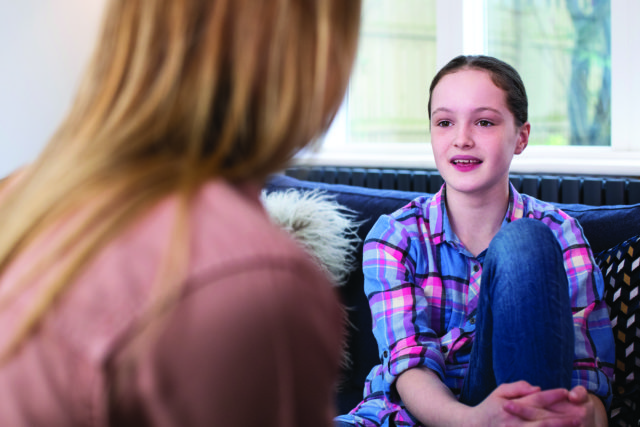Have you noticed that since the world began to reopen, our social skills have needed a tune up? I think we all got used to talking to the same people and not doing much. We also got used to hiding our facial expressions behind masks and following strict social distancing protocols, and reentry is proving to be a little more work than expected. These were necessary tools during a pandemic but as we begin to reemerge we might find ourselves needing to go back to the basics.
This could be said for our children, too. As they begin to think about the upcoming school year and going back full time and in person, now might be a good time to think about sharpening their social skills. Many will be entering new schools or seeing classmates for the first time, so understandably they may need a little help — possibly even a social skills crash course to help them make a smooth transition. There will be much academically to contend with as we are still yet to fully understand the effects of remote learning for a year and a half; however, if they are confident socially and armed with some simple tools, it might make this transition easier.
SMALL TALK
One thing we overlooked the importance of prepandemic was the mini-conversations or chitchat we had with different people throughout the day. Whether about sports or the weather, these conversations have been proven to boost our mood, help us feel heard or understood, and can decrease loneliness.
Our family loves baseball, so recently I was explaining to our kids that conversations should be like a game of catch — it should go back and forth. One way I try to help them understand this is when someone asks a question, don’t just respond with yes or no but elaborate a bit. This additional information may lead to great things like making a good impression, learning something new, or possibly even a new friend — all great friendships start with some sort of small talk.
MEANINGFUL CONNECTION
One of my favorite authors is Kelly Corrigan, a New York Times bestselling author and host of the podcast “Kelly Corrigan Wonders.” In May, she gave the commencement speech at a high school in Atlanta. Her advice to the graduates was simple and profound: If you want to have a happy and meaningful life, ask questions. It seems so simple and easy, but most of us don’t do it — we may have even forgotten over the past 18 months how to do it well. Corrigan also said the only thing better than a question is a follow-up question. There is more to every person — it’s just whether we take the time and effort to uncover it. From the Uber driver to the coffee barista to the new student sitting next to you, every person has a story to tell and something we can learn. So instead of asking the same old boring questions like, “How was your summer?” or “What classes are you taking?” encourage your child to try some of these instead: “What apps on your phone can you not live without?” “Who is your favorite person to follow on Instagram?” or “What’s your favorite thing to do on the weekends?” By asking questions and really listening to one another, we can find meaningful connections, which are scientifically proven to make us healthier and happier.
PRACTICE
Getting our social skills back up to speed doesn’t have to be stressful. It can be fun and interesting, but it will require some time and effort. And as with most things, in the beginning it can be challenging, but don’t give up. One of the easiest ways to start is by putting down our devices. This is a great area where parents can model for their children the behavior they hope to see. Having a conversation with a stranger, a good friend, or a parent requires eye contact, body language that portrays interest, and active listening. For our children who are used to and maybe even more comfortable communicating via text, tweet, or snap, this can be challenging, but these are important and lifelong skills.
With a few weeks left of summer this is a great time to get some practice before heading back to school. Encourage your child to try it with you, then maybe with a new child at camp, or even while waiting for an elevator. Continue to look for safe ways to engage with new people, and not only will this help strengthen social skills but you may even see it become a simple and easy way to boost your mood.
Liz Farrell is the mother of three young children and the founder of TechTalks, a consulting group to help schools and families have productive conversations around social media and technology. [email protected].





